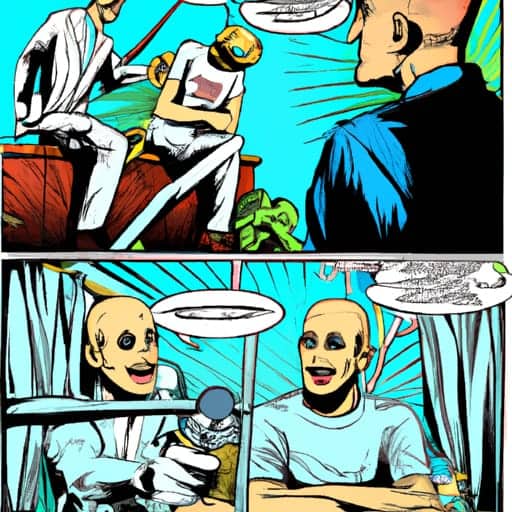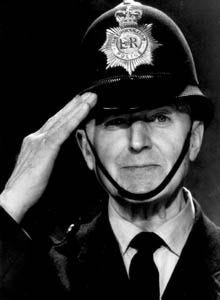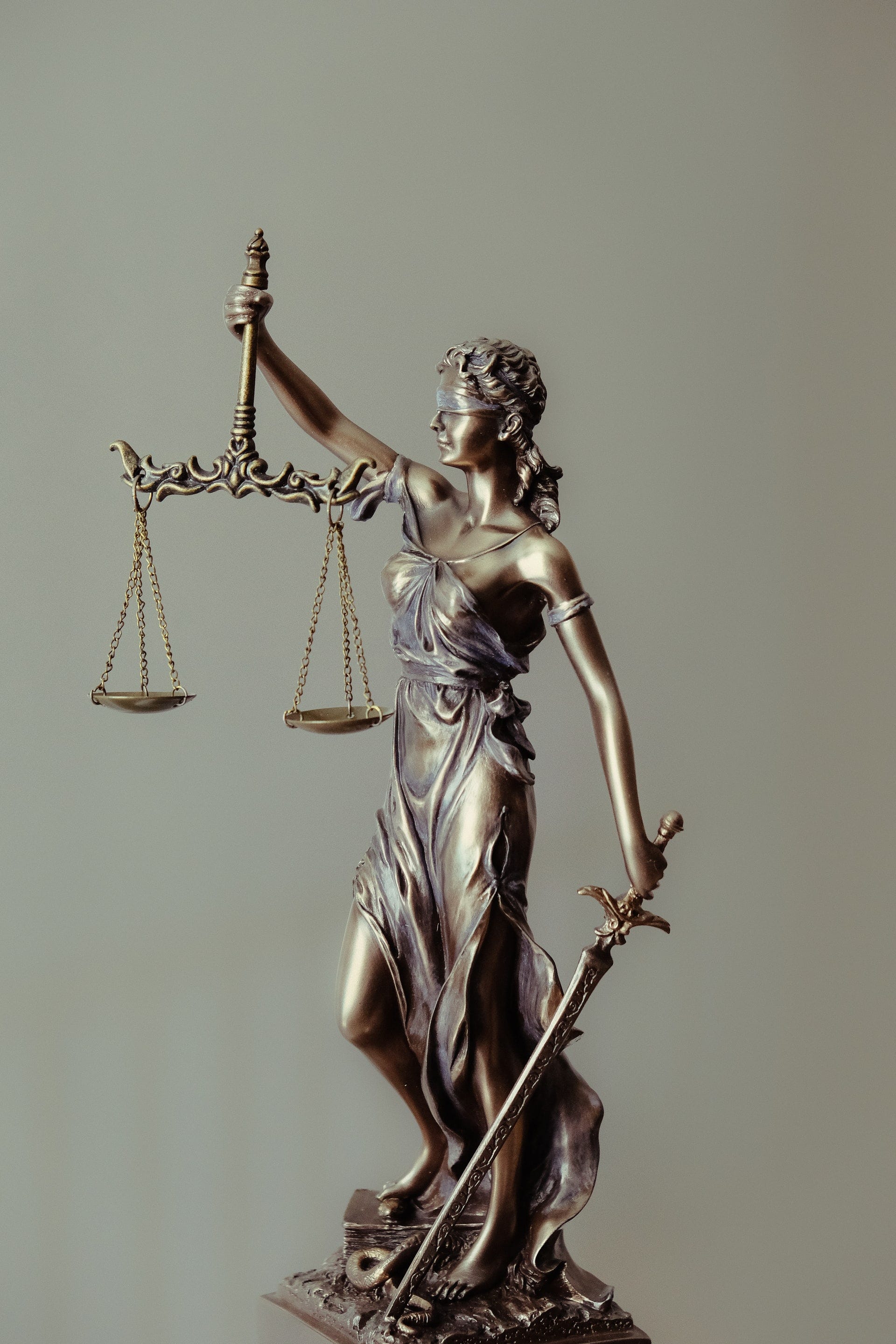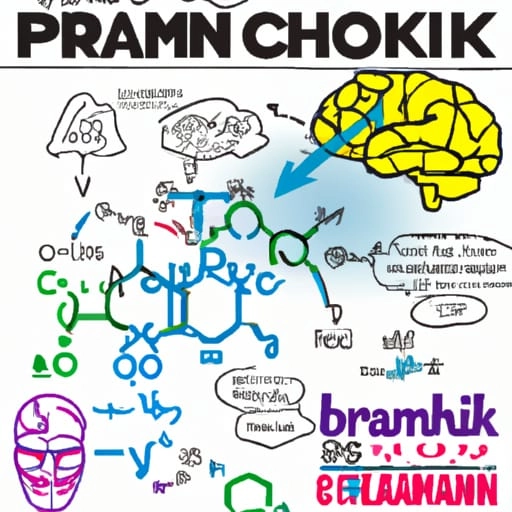
How Do We Decide The Difference Between The Mad and The Bad?
The Mad And The Bad And Telling the Difference
Probably because I’m a mental health professional, I spend a lot of time thinking about mental health issues, and, inevitably, when I travel I also notice how different cultures manage things differently to how we do things at home.
On visits to US cities, I observe people living rough who seem to be suffering from psychotic disorders. They talk to themselves, argue with imaginary people and live on the street in chaotic and distressing states. Distressing to observers maybe, but also distressing to themselves. This would not be tolerated in the UK. Really. They would be taken to hospital and treated — against their will if necessary.
But is that good or bad? it’s possible to look at this decision to leave psychotic people untreated on the sidewalk through different lenses:
- On the one hand, you could say that the UK is more punitive than the US and less tolerant of aberrant behaviour in public.
- On the other, you could say that the UK is kinder than the US because it will take and treat these mentally ill people for free.
This raises the question of whether people who behave in a disturbing way in public should be treated or punished, and how do we decide between the two?
Why Does This Behaviour Disturb Us Anyway?
Last year, I watched all of Jordan Peterson’s Youtube videos based on his book Maps of Meaning. I liked it so much, I bought the book and read it too. Peterson has become a controversial figure, but this was before all that. He is a good teacher and excellent at distilling the work of psychologists such as Carl Jung and Jean Piaget and making it understandable.
Peterson says that humans, wolves (and probably lobsters) play by unspoken social rules. If we go to the cinema, or sit in a lecture theatre or a bus, or encounter any other human, at least in our own culture, we all know the rules of the encounter. We sit quietly in the cinema, or in a lecture, but in a debate, we can talk according to the rules. We know about turn-taking and listening. When people stick to the rules of a situation, we feel comfortable. When people do not behave according to social rules, we get anxious. If they are unpredictable in this way, they could do anything — we can’t predict their behaviour toward us, and we don’t like that.
If we combine this breaking of the rules with the degree of violence they use — the energy they put into their shouting and gesturing. We get scared they might turn this violence on us.
It’s all a question of degree. If they merely mutter, then we tut, if they kick the bin over, if they shout, or if they become physically abusive, we get much more anxious. When they get really wild, we leave or call the cops.
I remember walking along the front of Santa Monica and there were lots of mentally ill people there. I am used to psychotic people shouting and arguing with no one and know it rarely leads to any real threat. The Americans walking by knew too and were pretty relaxed, but my daughters are not used to this kind of behaviour on the street, and they became visibly anxious.
Two Worlds

In the UK, if a man behaves chaotically in the street, the police will arrive and they will arrest him. If they think he is in need of ‘immediate care or control’ because he is mentally ill, they can use Section 136 of The Mental Health Act to arrest him by force if necessary and take him in front of two doctors and a social worker to see whether he needs to be compelled to go to a psychiatric hospital. With exactly the same behaviour, but no mental illness, the person will go down the criminal justice route and end up in front of a magistrate to be punished.
But how do the police decide which way to send someone? Police officers aren’t doctors skilled in diagnosing different conditions.
Certain disturbances of thinking such as Schizophrenia or psychotic Mania or even someone suffering the delusions of dementia or delirium seem clearly to be illnesses. It not controversial to consider these people ill and therefore blameless. Schizophrenia and Bipolar Affective Disorder are terrible, life-long illnesses, probably genetic and affect under 1% of the population each.
However, there are other people who are not psychotic still behaving in socially unacceptable ways, and we still consider certain of these people sick rather than criminally responsible.
In fact, most of the people who fall under mental health law are suffering not from disorders of thinking but from disorders of emotional regulation. They think fine most of the time, they just can’t control their emotional outbursts very well.
The Passions
The decision of whether to treat socially unacceptable behaviour as an illness or as criminal behaviour is multi-factorial. One factor is certainly a judgement about whether someone could or should control themselves.
If the person could control the emotion but doesn’t, then Society thinks they are to blame. If they simply couldn’t control it then they are suffering from something outside external to their will and therefore not at fault. They are visited by a force outside their control.
Robert C Solomon in his book The Passions: Emotions and The Meaning of Life, says
The passions [emotions] happen to us. “…and so in an important sense, we think of ourselves as suffering the passions, even joy and love…”
“Various passions ‘strike’ us, ‘overwhelm us’, ‘consume’ us, ‘paralyze’ us; we ‘fall’ into them, ‘give way’ to them, and we attempt to ‘hold them down,’ ‘keep the lid on,’ ‘maintain control’, and ‘suppress’ them.
Insofar as the passions are thought to be actions at all, they are merely reactions to events beyond our control.”
But who decides which passions we should control? Our Society does. And this varies from culture to culture and over time. Society decides which emotions should be under control and which we can be excused for. If we choose not to exercise control, we are bad. If we are unable to control them, we are ill.
As children, we are prey to strong storms of emotion both positive and negative. If we are sad, we are rarely blamed and punished, but if we are angry, then we can expect a hiding. At least in my day. Our whole childhood is a process of learning which emotions we should control. Most of us manage this pretty well most of the time. Some of us manage it very little.

As noted, different emotions are treated differently. Which emotions we suppress and which we allow is the basis of our Society’s morality. In fact, emotional regulation is probably the only thing morality is about. Don’t steal even if have the urge, don’t commit adultery even if you’re attracted.
Friedrich Nietzche said,
“The function of reason is to allow expression of certain passions at the expense of others. A morality is a set of principles which restricts passions…”
Stoicism
I see lots of books and blogs about Stoicism. It seems that the ancient views of Stoicism are increasingly popular and they take a stern view that you need to be responsible for your emotions. Stoicism originated among the ancient Greeks. Arguably, its most famous adherent was the Roman Emperor Marcus Aurelius. The Stoics were very concerned about how you handled your emotions, particularly anger. In a nutshell Stoics both ancient and modern, think you should stay calm and not give in to your emotions. That’s broadly what our law and civil society think too.
Thou Shalt Not
Judaeo-Christian culture is built on Thou Shalt Not.
Standing back, we see that the purpose of any emotion is to motivate behaviour. We feel a certain way and it prompts a certain behaviour. Nearly all our acts began as feelings. It is possible to plan something coolly and rationally with no emotional content, but largely our passions push us.
Some emotions are more guilty than others. There are emotions or feelings are we not held responsible for. For example:
- Hunger. We can’t help being hungry, but we should help being greedy.
- Love. We are rarely held to blame for falling in love either, though love is a powerful, mind-altering emotion and can lead to damage and destruction. Love can quite easily turn to jealousy which leads in turn to rage and rage is a very destructive emotion.
- Happiness. No one minds this.
- Fatigue. Although Chronic Fatigue Syndrome can be criticised by some as Sloth (see below).
- Disgust. Disgust is an emotion of turning away from an object and usually condemning it. You can’t help being disgusted, though what societies are disgusted by changes over time and we may now criticise our ancestors for their prejudices.
- Sadness. It is felt that everyone can get sad and it’s not their fault. People who chide others for sadness are seen as cold and heartless
Emotions we are generally held responsible for:
- Anger. My sudden rage at not getting my way and smashing someone’s phone would be considered a crime and I would be liable to punishment.
- Sadistic impulses.
- Greed. Put that pie down!
- Fear. You should master your fear and demonstrate courage
- Discouragement or demotivation, which is closely related to depression. Buckle up and get on with it!
- Boredom. Find yourself something to do!
This all looks pretty familiar, doesn’t it? The list of modern day emotions we should control is pretty similar to the The Seven Deadly Sins that were set out officially by Pope Gregory I in the 6th Century CE.
Here they are:
- Pride
- Envy
- Gluttony
- Greed
- Lust
- Sloth
- Wrath
Things haven’t changed much over the centuries. These are the emotions that you will be held to account for if you display them in public. They disturb others.
But still, we haven’t got to the bottom of why we treat some displays of emotion as a sickness and some displays as a crime.

Why Not Just Punish Everyone?
It might be worth looking at criminal law to see whether we can finally work out the difference between the mad and the bad.
Normally, criminal liability is linked to Mens Rea, Latin for the ‘guilty mind’. In essence, this says that for you to be criminally liable you have to be aware that what you are doing is wicked. You have to feel a sense of guilt.
The French famously have the Crime of Passion defence in Law which is a defence of not guilty due to the fact that emotion has overpowered reason and therefore the perpetrator does not have a guilty mind.
However, in most jurisdictions, this kind of appeal to being overpowered by emotion will not stand. In the UK, we have the crime of Manslaughter. Manslaughter is where you kill someone but are less guilty than if you had murdered them with a guilty mind, knowing in advance that what you were doing was wrong. So, it is invoked when you kill someone by accident, but rarely if you kill someone in a fit of passion
It’s a similar argument that leads to the insanity defence. This defence is basically that the perpetrator of the crime was driven by forces beyond their control (unreason) and lacked a guilty mind, therefore they are not deserving punishment.
That leaves us with the problem of getting a reliable rule as to which kind of people have a guilty mind, and which do not.
The philosopher John Stuart Mill in his paper On Liberty, beloved of Libertarians everywhere, says that everyone should take account of the impact of their actions on others. The only group of people he excludes are people (and more offensively) societies in their ‘nonage’. This group includes children, but also people he doesn’t consider to be cognitively able to take account of their actions.
This idea of certain people not being able to take responsibility for their actions is carried into English law in the Mental Capacity Act 2005 which presumes people are free to make decisions, even unwise ones, except where a brief test rules them as lacking capacity to make decisions due to “a disturbance or impairment of brain or mind”. That is to say an illness that has visited them. A force beyond their control has seized them.
Historically, English law made a distinction between imbeciles, that is people who have problems with thinking and learning, and moral imbeciles, This idea of a moral imbecile appeared in the 1913 Mental Deficiency Act but had been taken out by 1959. It was thought that there was a class of person who was not certified under the existing Lunacy Laws and who constituted a menace to the ‘stability of the nation,’ and who pursued lifestyles which were ‘deviant’ to middle-class norms.
So it seems that Person + Undesirable Emotionally Drive Action + Mental Incapacity = treatment.
But Person + Undesirable Emotionally Driven Action + Full Mental Capacity = prison.
But it’s still not a 100% reliable rule of thumb.
What About Psychopaths?
This issue is still live with reference to psychopathy. Psychopaths (or Sociopaths depending where you live) are a special case. They seem to be unable to feel empathy and therefore guilt not through choice, but because of how they are born. When they commit a crime they do not have a guilty mind, because they can not feel guilt, even if they wanted to. It seems as hard to blame them for that as to blame me for not being able to see green because I was born colourblind?
This leaves Society with a problem. Here we have a group of people who can exhibit disturbing and threatening behaviour, but they can think rationally and are not overpowered by a passion. However, they they lack a sense of guilt. Not through choice, but because they are unable to feel these emotions through no fault of their own.
If we were going to be consistent and only blame those who know right from wrong and ignore it anyway, then we wouldn’t lock up psychopathic criminals.
Richard Dawkins in his book The Selfish Gene proposed that psychopathy was an evolutionary adaption for a small percentage of humans who predated their own species. The rest of us don’t like that. Given that the Seven Deadly Sins have remained constant since at least the 6th Century CE, is our decision making on this issue cultural or species bound?
It’s Pretty Fuzzy in the End
In this brief gallop through deciding who is mad and who is bad, we have seen that the decision is pretty rule of thumb and not logically consistent.
Judging the rights and wrongs of behaviour does seem to have been consistent right down the centuries. This suggests at least the possibility that our decisions of who to chastise and who to give care to, may actually arise from deep in our being human.


